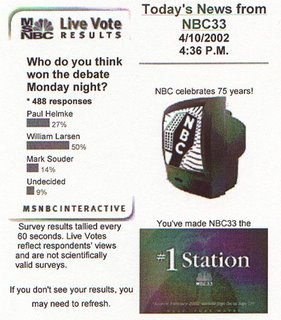Property, Sales and Income Tax Overhaul
Property taxes are high, people are complaining. What should be done? There are proposals out there to reduce property taxes and increase the sales and/or state income tax and/or local tax. Are these proposals nothing more than rearranging the deck chairs on the Titanic?
A family of four with an income of $45,000 has a zero Federal Income tax liability. They will pay $4,095 in Social Security and Medicare taxes. Assuming they save 1.5% of income ($675), spend $3,500 on groceries, $1,200 on healthcare, $9,805 on mortgage, $350 on book fees and $400 on home owners insurance they have $15,255, excluded from sales tax. This means they spend $23,475 that could be subjected to sales tax. Increasing the sales tax by 1% increases their tax by $235. Increasing the sales tax as suggested to 9% would see this family pay $705 more in sales tax. Would their property tax bill drop by $705? Adding a 1%, state income tax would see their state income tax bill rise by 1% would see their tax bills increase by $1,015 a year. The question is would their property tax bill drop by $1,015?
It is very difficult for most people to calculate or even estimate how much they pay in sales taxes a year. The one major difference with the property tax bill is we see this large number at one time and it makes us think about what we are actually getting for our money. Paying 9 cents on the dollar in the form of a sales tax adds up to only a few dollars at a time, but the mere fact we make thousands of purchases a year that the tax gets rounded up makes the proverb of “a few pennies here and a few pennies there and when combined can add up to some serious change.”
Repackaging the three taxes will make it more likely a tax increase will take place. In addition, an increase in sales tax will most likely be in increments of 1%. This means each one percentage point increase will be about a 16% increase in taxes. I doubt they will go in fractional increments. There is no free lunch here. If we the taxpayer want services, then we the taxpayer must be willing to pay the tax to support these services. If not, then we the taxpayer must inform our representatives what services we do want and which ones we do not.



0 Comments:
Post a Comment
<< Home